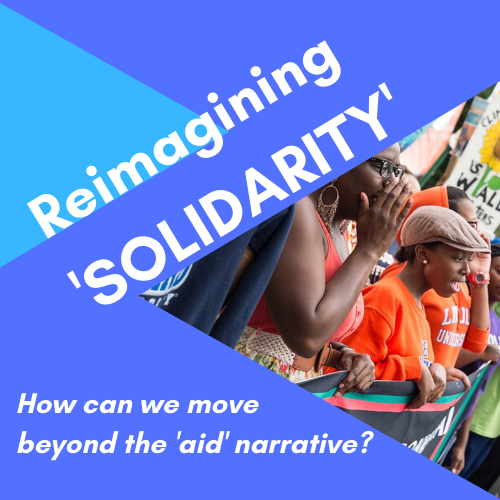HPA response to #WetheHelpers Campaign
On by Clemmie James
This campaign directly undermines global justice. We know that’s not what it intends, but that’s what the message it portrays does.

This campaign directly undermines global justice. We know that’s not what it intends, but that’s what the message it portrays does.
It is part of a wider aid narrative which bolsters power imbalances between the Minority and Majority world, whilst distracting focus from the real causes of poverty. It is ultimately likely to generate public hostility to the cause, rather than winning solidarity: Specifically:
It inflames global power imbalances. It glorifies aid work, and especially aid workers creating a ‘dichotomy between ‘we the helpers’ and the ‘helpless’. And no, using images of ‘helpers’ from the Majority world and a brief snapshot of the UK does not negate this.
It’s ineffective – unless our only goal is short term fundraising. But if the aim is to build solidarity, this approach fails on its own terms. The campaign aims to engage ‘Conscientious Cynics ‘who have lost hope in the work of international organisations. But the fact that the British public have lost hope in us is hardly surprising. For decades we in the INGO sector have spun a myth that -despite austerity at home- citizens of the UK are generously giving money to other countries to ‘solve’ their poverty. Yet despite the UK’s much debated aid budget, the Live-Aid concerts, and the generous response to appeals, poverty continues at obscene levels.
In the absence of an honest explanation of why poverty exists, this has led people to a place where poverty is seen as a failing of the poor, rather than a systemic and created injustice. Blame is placed on poverty’s victims, rather than those who perpetuate it.
The ‘We The Helpers’ campaign claims to be ‘meeting people where they’re at’, ignoring in its messaging the fact that: a) it’s us that put them there in the first place, and b) as the wealth of framing research shows, to move people to another place you have to stop recreating the same unhelpful frames.
We have to stop lying to people about aid. Aid isn’t the solution to poverty. Not whilst we continue to ignore its causes. Whether that’s the legacies of colonialism, or the ongoing extraction of wealth from Majority World countries. Through tax dodging, unfair trade policies, our contributions to climate change or harm caused by the so called ‘war on drugs’, the UK extracts many times more from the Majority World than it gives. Until we address this, aid can only ever be, at best, a meagre form of compensation.
If we really want to build solidarity and a more equal world we in the sector needs to stop thinking about our short term budgets and engage in an honest debate and public education about the root causes of global poverty and inequality. Let’s not talk about ‘helping the poor’, but about making the world fairer and more equal – and tackling abuse of power and corruption. The cause of global justice and poverty eradication requires a fundamental reimagining – one fit for the 21st Century – and one that can inspire rather than divide the public. That means focusing on inequality at all levels, wherever it occurs, and working together to build solidarity to tackle its root causes.
For more information see the following resources:
Honest Accounts
A Practical Guide for Communicating Justice and Solidarity
Principles for Communicating Justice and Solidarity
Kampala Initiative declaration

